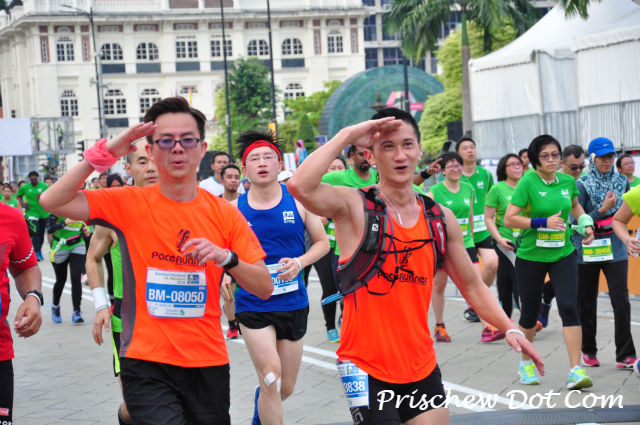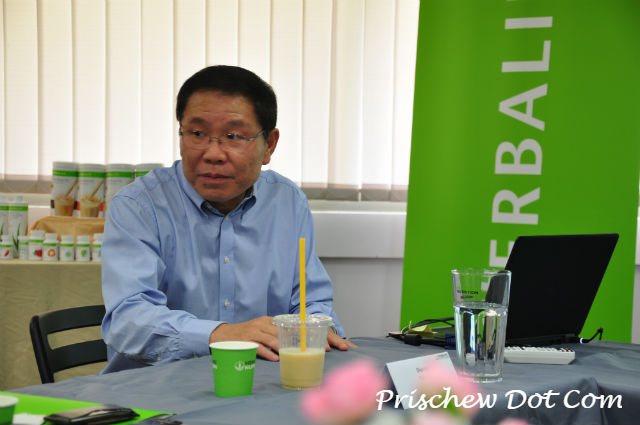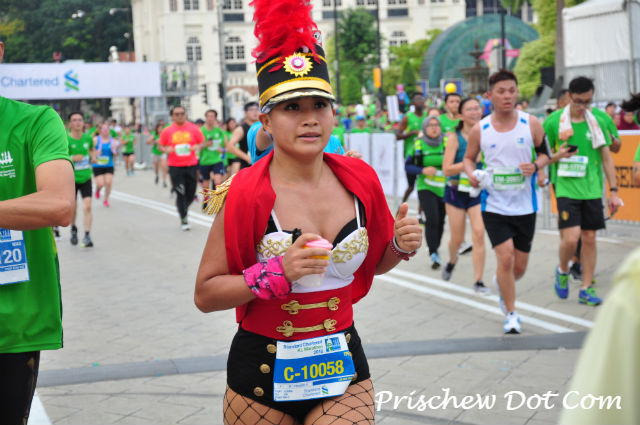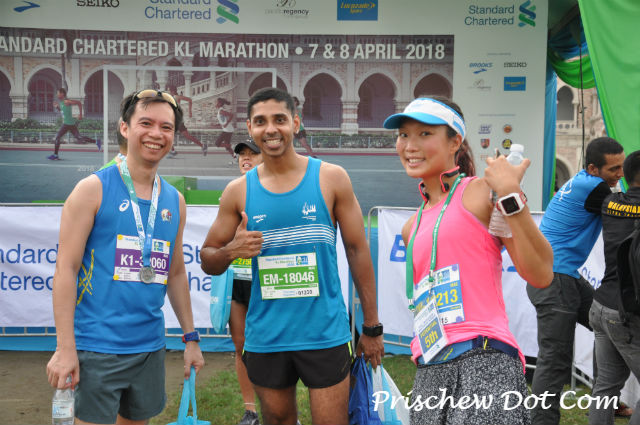Dr. Chen Zhen-Yu, 60, is a Food and Nutritional Science expert with over 27 years of experience in food and nutritional science and is currently the Chair Professor of the Food and Nutritional Science Programme and the Head of the Graduate Division of the School of Life Sciences at the Chinese University of Hong Kong.

At a recent session on nutrition and healthy eating that had been organised by Herbalife, I picked Dr Chen’s brain on issues relating to nutrition and exercise.
When it comes to exercise and having breakfast, Dr Chen generally recommends that it is not a problem for the average weekend warrior to eat something light before exercising if your body can take it.
He said, “When you wake up, it is okay to eat something to kickstart your metabolism if you are going for exercise. Some people can’t take food before a workout though because it upsets their stomach, so having a shake for energy is generally a good option in those cases. A shake is a liquid meal so this is easier to digest.”
For those who really cannot stomach food or drinks though, Dr Chen feels that it is not a problem to exercise on an empty stomach as long as you kickstart your metabolism by eating your breakfast immediately after the sports session.

But Dr Chen stressed that in professional sports competition, high level athletes generally should not eat too soon before their competition if they wish to perform at their peak.
He said, “When you eat, the blood glucose level goes up and the insulin also rises. This will inhibit the body’s ability to use glucose when the insulin is high, so it converts to fats and will affect your ability to perform at the top level.”
He continued, “So for high level athletes, we recommend that they eat two to three hours before competition and have a meal that is rich in carbohydrates as this will provide them with energy to sustain their bodies when they are competing.”
While it is possible to burn calories from fat rather than carbohydrates during sport, Dr Chen says that using fat calories is a slow process so he does not recommend it himself.

Said the nutritionist, “Fat can give you calories but it is slow. The muscles have very little fat so when you want to use fat as fuel, it has to be metabolised from the adipose tissues and then from there, it has to be hydrolysed by the blood and mitochondria and then set to the muscles and the process can take ages.”
In most cases though, Dr Chen does not think that the body will naturally turn to fat for energy.
He said, “You should not treat glucose and fat calories together. If the body has enough glucose, it will not burn fat but only if you are burning a lot of calories and the glucose cannot meet your needs, then the body turns to fat. For marathon runners, their high speed of running and high calorie burning rate may result in the body not being able to have enough glucose to burn so the muscles may begin to burn fat. But if the protein levels in the body are high, then the body may also turn to protein to burn if the glucose levels are depleted.”
And for long distance sport competitions such as marathons and Ironman, Dr Chen reiterates that is important to fuel using sports drinks too. These, according to the nutritionist, contain 6-8 per cent glucose plus minerals. They also have 6 per cent sugar in them, which can be mixed in the form of various types of carbs such as glucose or fructose.

Said the nutritionist, “So endurance athletes can drink these say every half hour, to provide additional carbs and glucose to keep them running for two hours or more.”
He continued, “Generally though, marathon runners still need a good level of carbs to supply calories to their muscles so we would recommended carbs over fats or proteins for energy.”
In general, Dr Chen recommends a diet high in carbs and low in fats for athletes. These include whole grain carbs such as bread or cereals which do not contain too much simple sugars.
He also added too that fried food is generally not a good option, as the process of frying can add unnecessary calories to the food – for example, a fried egg contains 30 per cent more calories over a hard boiled egg.
Said Dr Chen, “Too much fat is no good, especially when it comes to sports performance.”

Dr Chen however, has an interesting take on carbo loading, which is a common practice used by athletes to maximise their glycogen stores for a race, by increasing their carbohydrate intake.
Said Dr Chen, “With carbo loading, you are getting 65 to 70 per cent of your total calories from carbs. But this leaves no room for proteins and fats, so it is good for the short term but will not be able to sustain the body in the long term.”
He added, “The best way to carbo load is to completely deplete your carbohydrate storage about 7 days beforehand by say doing exercise for about 3-4 hours to use everything up and then after that you gradually increase your carbohydrate intake.”
Another way to complete deplete the carbohydrate stores would be to go on a strict carb-free diet for several days.
According to Dr Chen, emptying the glycogen stores and then replenishing it will result in the body being able to load more glycogen in the liver and muscle cells rather than simply loading without depleting it first.
He explained, “It is like a room. If we empty a room before filling it up, we can structure it better and put in more stuff, compared to simply adding things into the room when there is already pre-existing stuff in there.”

Still though, Dr Chen stressed that carbo loading is more for professional athletes taking part in elite competition rather than for the average athlete or weekend warrior who wishes to boost his or her performance because of its detrimental effects to the body in the long run.
Instead, to a regular person or the weekend warrior athlete, Dr Chen feels that eating a balanced diet consisting of food items coming from the three main food groups, is still the best way to stay healthy and manage their bodies well.

Leave a Comment